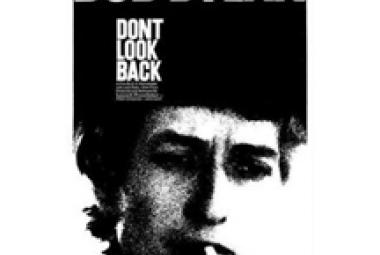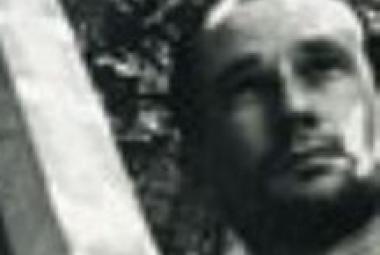Led Zeppelin were an English rock band formed in London in 1968. The group consisted of guitarist Jimmy Page, singer Robert Plant, bassist and keyboardist John Paul Jones, and drummer John Bonham. The band’s heavy, guitar-driven sound, rooted in blues and psychedelia on their early albums, has earned them recognition as one of the progenitors of heavy metal, though their unique style drew from a wide variety of influences, including folk music. Their fourth album, which features the track “Stairway to Heaven”, is among the most popular and influential works in rock music, and it helped to secure the group’s popularity. Various sources estimate the group’s record sales at 200 to 300 million units worldwide. They were inducted into the Rock and Roll Hall of Fame in 1995; the museum’s biography of the band states that they were “as influential” during the 1970’s as the Beatles were during the 1960’s. (More from Wikipedia)
The very earliest power chords are credited to 1950’s bluesmen. Music historian Robert Palmer (not the same man as the 1980’s singer named Robert Palmer by the way) cites Willie Johnson (on Howlin’ Wolf’s “How Many More Years” that was recorded in 1951) and Pat Hare (on James Cotton’s “Cotton Crop Blues” that was recorded in 1954). If the name of the former song rings a bell, you are likely remembering “How Many More Times”, the last and longest track on Led Zeppelin’s 1969 debut album, Led Zeppelin. Under his real name, Chester Burnett, Howlin’ Wolf got a songwriting credit on later editions of the album. Anyway, the Brits liked what they heard and launched the British Invasion, and the rest is history.
Whether or not Link Wray heard these records and got the idea has not been established as far as I know.
* * *
The 2008 documentary, It Might Get Loud shows rock guitarist legends from three generations discussing their music and their careers and their influences: Jimmy Page (the Yardbirds, Led Zeppelin), The Edge (U2), and Jack White (the White Stripes, the Raconteurs). Needless to say, they all three made the Rolling Stone list of 100 Greatest Guitarists also: #3, #38 and #70, respectively.
At one point, Jimmy Page starts flipping through a pile of 45’s and pulls out “Rumble” by Link Wray and His Ray Men. To see a rock legend grooving along with that song, to see that big beaming smile on his face, to hear him discussing how the song developed, to see Page actually doing “air guitar” to “Rumble”: that really is something special. The clip from It Might Get Loud is well worth a viewing: www.youtube.com/watch?v=RLEUSn8y9TI .
(February 2013)
* * *
Lead singer Robert Plant of Led Zeppelin heard “Heartbreak Hotel” when he was just 8 years old; he has said that the song “changed my life”: “It was so animal, so sexual, the first musical arousal I ever had. You could see a twitch in everybody my age. All we knew about the guy was that he was cool, handsome and looked wild.”
(June 2013/1)
* * *
After releasing their second album Queens of Noise, the Runaways toured Japan in 1977 and attracted Beatlemania-level attention according to Joan Jett – their popularity in Japan among foreign bands trailed only ABBA, KISS and Led Zeppelin. Their third album, Live in Japan documented their experiences there.
* * *
Chimera recorded something like 20 songs (variously reported as being in 1968, 1969 and/or 1970) in an acid-folk style for a planned album that remained unreleased for decades, while picking up legendary status among psychedelic record collectors. Amazingly, only cassettes remain from the recording sessions, though the sound quality is not at all impaired; they were remastered beautifully by Denis Blackham, an industry legend who had previously mastered the music for the Evita and Cats musicals and also albums by Led Zeppelin, Madness, Eurythmics, and Brian Eno.
(November 2013)
* * *
When I first encountered the music of Tori Amos, it sounded so different from everything else on the music scene that I wasn’t even sure it would be filed in the Rock category at the record stores. Tori was born in North Carolina as the daughter of a Methodist minister, though she was raised in Maryland. She was a musical prodigy who knew her way around a piano as a young girl. Tori Amos received a scholarship at Peabody Conservatory in Baltimore, though she lost it at age 11, possibly because of her growing interest in popular music, particularly Led Zeppelin.
(February 2014)
* * *
Along with many other figures from the underground press, Mick Farren moved to the influential New Musical Express (NME) in 1974. Quoting again from the Telegraph obituary: “Allowed free rein to explore the outer reaches of popular culture by its editor, Nick Logan, Farren turned in a series of memorable pieces on people such as the motorbike stunt-rider Evel Knievel and the avant-garde film director Kenneth Anger.
“In the summer of 1976, by which time the Sex Pistols were introducing Britain to punk, Farren’s NME piece headlined ‘The Titanic Sails At Dawn’ [again using a Bob Dylan lyric, this time from one of my all-time favorites, “Desolation Row”] was judged to have caught the mood among the generation of teenagers disaffected by giant stadium acts like the Rolling Stones and Led Zeppelin.”
(March 2014/1)
* * *
Vanilla Fudge had the good fortune to tour with Jimi Hendrix, was the opening act on several concerts on Cream’s last tour, and finally began touring with the brand-new Led Zeppelin opening for them. After hanging in there for several more albums (Sundazed Records has reissued four of them), the band broke up in early 1970.
(April 2014)
* * *
Running down something like this for a major rock band like the Beatles or Led Zeppelin would be difficult enough; but I can’t imagine where he even looked, a half-century later, to find out about every gig of the Soul Agents (18 in the month of August 1964 alone, to pick one month basically at random). Bruno Ceriotti noted that one club where the band performed regularly, the Marquee in Soho did not normally list the supporting acts in their monthly program listings, making it that much more difficult.
(May 2014)
* * *
The future bass guitarist for Led Zeppelin, John Paul Jones released a surf instrumental record in 1967 called “Kalani Honey”; Kim Fowley produced the record, and it is included on the Fowley compilation album, King of the Creeps: Lost Treasures from the Vaults 1959-1969, Vol. 3.
(January 2015/1)
* * *
By September 1963, the Rolling Stones had outgrown the local club scene and had begun to tour; their replacement at the Crawdaddy Club was another of the major British Invasion bands, the Yardbirds, whose line-up at that time included Eric Clapton. Other major bands and artists who performed at this club include Led Zeppelin, Long John Baldry, Elton John, and Rod Stewart.
(January 2015/2)
* * *
Wikipedia states: “The band [Eleven] cites their major influences as Jimmy Page and Led Zeppelin, Queen, The Beatles, Johann Sebastian Bach, and Sergei Prokofiev. With Chris Cornell [of Soundgarden and Audioslave], they recorded [Natasha] Shneider’s arrangement of Franz Schubert’s ‘Ave Maria’, which appears on the album, A Very Special Christmas 3 [1997], in the liner notes of which they state they deliberately chose a classical work to help interest young people in classical music.”
(April 2015/1)
* * *
Like the band’s first record, the Primitives’ second single for Pye Records, “You Said” b/w “How Do You Feel” did not chart at all in the U.K. About the flip side, Bruce Eder notes: “[A] bluesy cut with a nice, choppy rhythm part, similar to what the Yardbirds did with ‘Here ’Tis’ or ‘Good Morning Little School Girl’ on-stage, only with better singing.”
Years later, word got out that, on both of the songs on this 45, the band’s lead guitarist Geoff Eaton was replaced with future Led Zeppelin star Jimmy Page, who was a prolific session guitarist in the early part of his career. As reported on popsike.com, the single has sold on eBay several times recently – for the equivalent of nearly $600 in one case – but oddly, this fact is not mentioned on any of the several items that I looked up on the website about this single.
“You Said” is included in the four-CD box set, Nuggets II: Original Artyfacts from the British Empire and Beyond, 1964–1969.
(May 2015)
* * *















